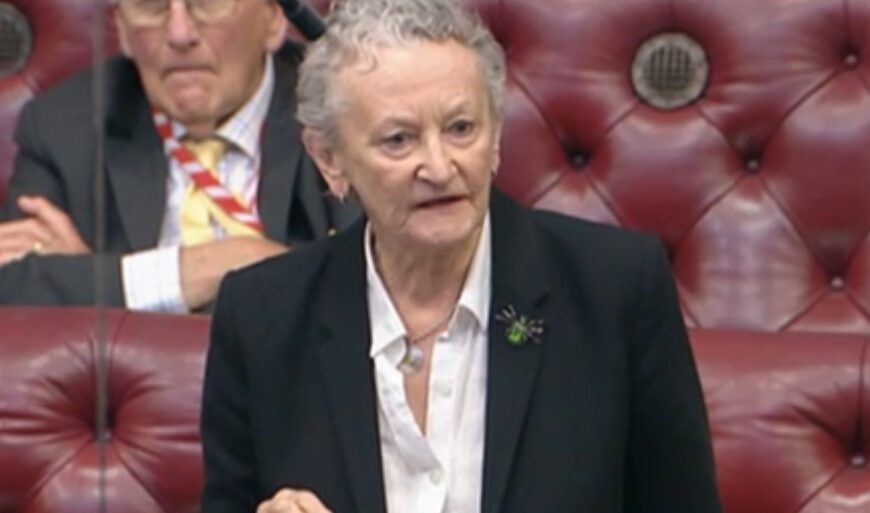Fatal Motion on Public Order Bill voted down as Labour orders abstention in the Lords
Amendments to the Public Order Bill will now pass into legislation.

On Tuesday night, the Government was succesful in defeating a so-called “fatal motion” in the House of Lords on their proposed amendments to the Public Order Act . Labour abstained from a vote triggered by the fatal motion tabled by Baroness Jenny Jones.
A fatal motion is a rare parliamentary procedure that has the potential to kill off the passage of government legislation and is the strongest opposition which can be taken in the House of Lords.
Amendments to the Public Order Act 1986 would lower the threshold for police intervention on protests and empower police officers to impose conditions – including changing timings, locations and routes, and imposing noise restrictions – on protests they believe “may” cause “more than minor” disruption.
The latest legislation is part of a wider clamp down on the right to protest by the Government, following the Public Order Act 2023, which became law last month – giving police increased stop and search powers, allowing them to stop and search individuals without suspicion of a crime taking place. In addition, the Police, Crime, Sentencing and Courts Act curtailed the right to protest, giving police officers the power to limit any protest deemed ‘a nuisance’ or ‘noisy.’
Speaking in the Lords, Labour spokesman Lord Vernon Coaker said his party would abstain.
“We will abstain on the fatal motion. We will not block this legislation. So let me be clear to those who keep asking me whether the official Labour position, His Majesty’s opposition’s position, is to block the bill. We will not do that. I understand why some people wish that to be otherwise but as His Majesty’s opposition, we will respect convention.
We will respect tradition. We will respect the right way of doing politics in our country and I don’t believe that it necessarily shows any respect for the way that democracy votes by voting down the opinion of the elected government of the day.
The way to change that is in my view to, at the next election get rid of this government and put another government in its place.”
Baroness Jones’ fatal motion was rejected by peers by 154 votes to 68, majority 86. 10 Labour Peers defied the whip and voted for the motion:

Sacha Deshmukh, chief executive at Amnesty International UK, said:
“The shifty passing of these regulations as law marks a dark new era for protest rights in the UK. The police have, in effect, been given licence to close down almost any protest they wish.
Given the well-known problems of institutional racism, sexism, homophobia and political bias in the police – only underscored by the explosive revelations from the Casey Report into the Met Police – now is absolutely not the time to be handing them ever-more broad and sweeping powers to pick and choose which protests they will and won’t allow.
But let’s not fool ourselves, this news comes as no surprise. The Government has been hellbent on passing a whole raft of anti-protest legislation in recent years and this latest addition just stands alongside an already absurdly long list of ways that the fundamental human right to peaceful protest is being muzzled.
We can only hope that future governments see this for what it is and repeal this insidious package of laws being inflicted on the country.”
You can read the full debate in Hansard here.







